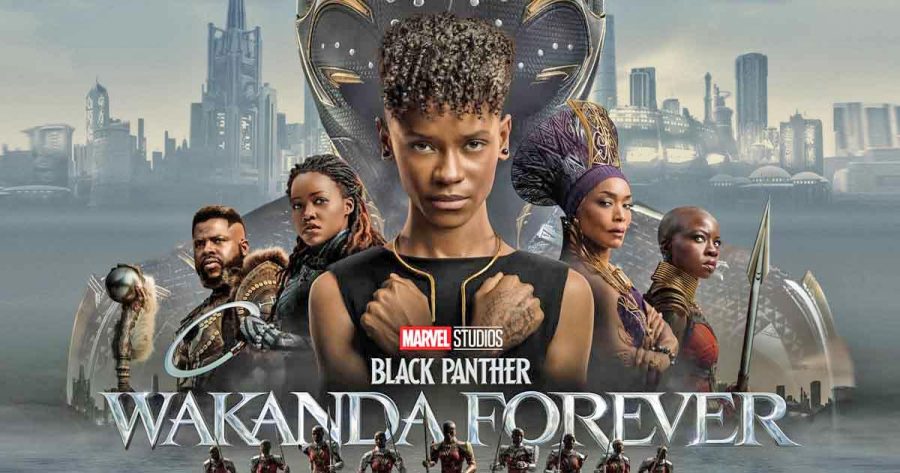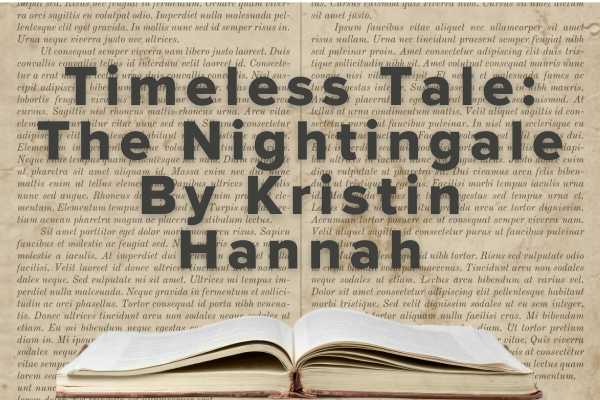On Aug 28, 2020, actor Chadwick Boseman, star of the first Black Panther movie, died of Stage 4 Colon Cancer. Boseman played the role of T’Challa, King of Wakanda, and the Black Panther. Boseman’s death left Marvel fans wondering about the new film, “Black Panther: Wakanda Forever” since T’Challa would no longer be a character.
Marvel created the film as a tribute to Boseman all while building an entertaining and impactful storyline. It is not easy to switch from a devastating scene to a scene filled with action, however, Marvel successfully put those types of scenes together all throughout the movie.
Marvel also did an excellent job at picking music to go with the creative scenes. “Black Panther: Wakanda Forever” had two soundtracks. One soundtrack included the instrumentals composed by Ludwig Göransson, and another soundtrack included songs featuring artists such as Tems, Burna Boy, Stormzy, Rihanna, and more. The soundtrack emphasized the emotions already conveyed in the actions of the characters. The movie held great power over the audience, even in moments persisting of pure silence.
When compared to the acting in “Black Panther: Wakanda Forever,” the music added little to the evoking of emotions. Actress Letitia Wright plays the role of Shuri, T’Challa’s younger sister. In the first Black Panther, Shuri thrives off of her intelligence, but her goofy and somewhat childish behavior annoyed the elders of Wakanda. In spite of her lack of maturity, Shuri amused me and I watched “Black Panther: Wakanda Forever” expecting that version of Shuri, but Marvel chose to give us a better version of her. The Shuri in this movie remained brilliant, but she experienced the loss of several people and began to change. Shuri held on to her humor but gained a new perspective on life that made her more emotional. Wright played Shuri in a way where you could clearly see her character development. While Wright’s an incredible actress, I’m sure every tear in that movie came from real grief.
The movie’s main antagonist, Namor, also appealed to me. Namor came across as personable and it became hard to not sympathize with him. Actor Tenoch Huerta executed different versions of Namor. Namor would be cold and murderous one second, then sensitive and vulnerable the next. Other characters like Okoye, Ramonda, and M’Baku also seemed to open up compared to the previous movie. Writers made characters relatable by giving them traits that could connect with the audience.
“Black Panther: Wakanda Forever” represented different cultures, values, and beliefs. The movie discusses spirits living among them after they have passed. The characters travel to places like Haiti, Mexico, Talokan, Capital City, Mesoamérica, Yucatán and Cape Verde. Every time the characters go somewhere, you can see how the culture differs from America’s. I liked learning a little bit about the clothes and accessories people in other places wear and I think it benefited the movie.
Shuri’s challenges prompted many surprises in “Black Panther: Wakanda Forever” and I enjoyed every single one, including the surprise in the end credits. The movie created suspense with unpredictable key moments. I give this movie five out of five stars and encourage everyone to watch it while it is in theaters.






















